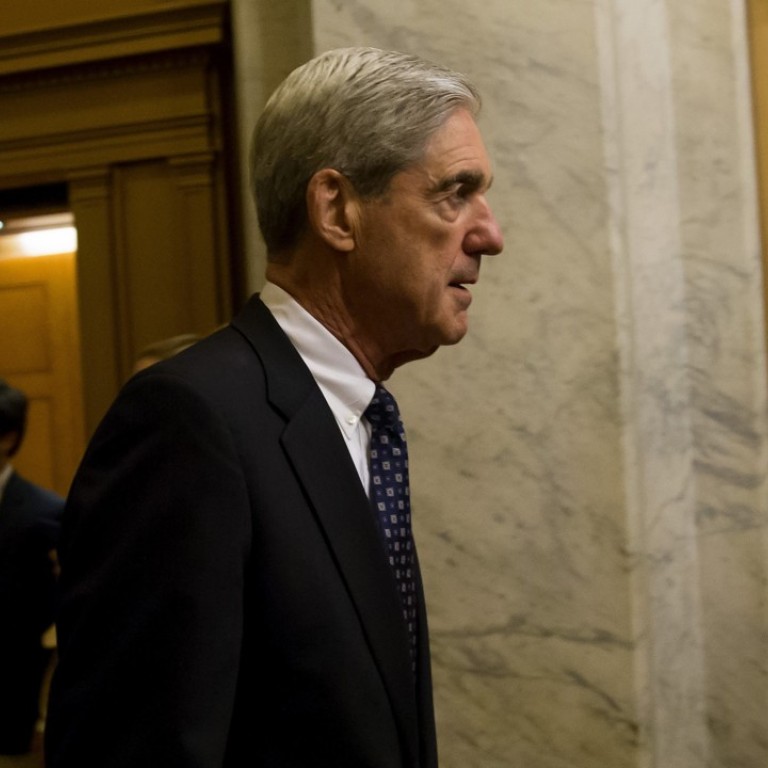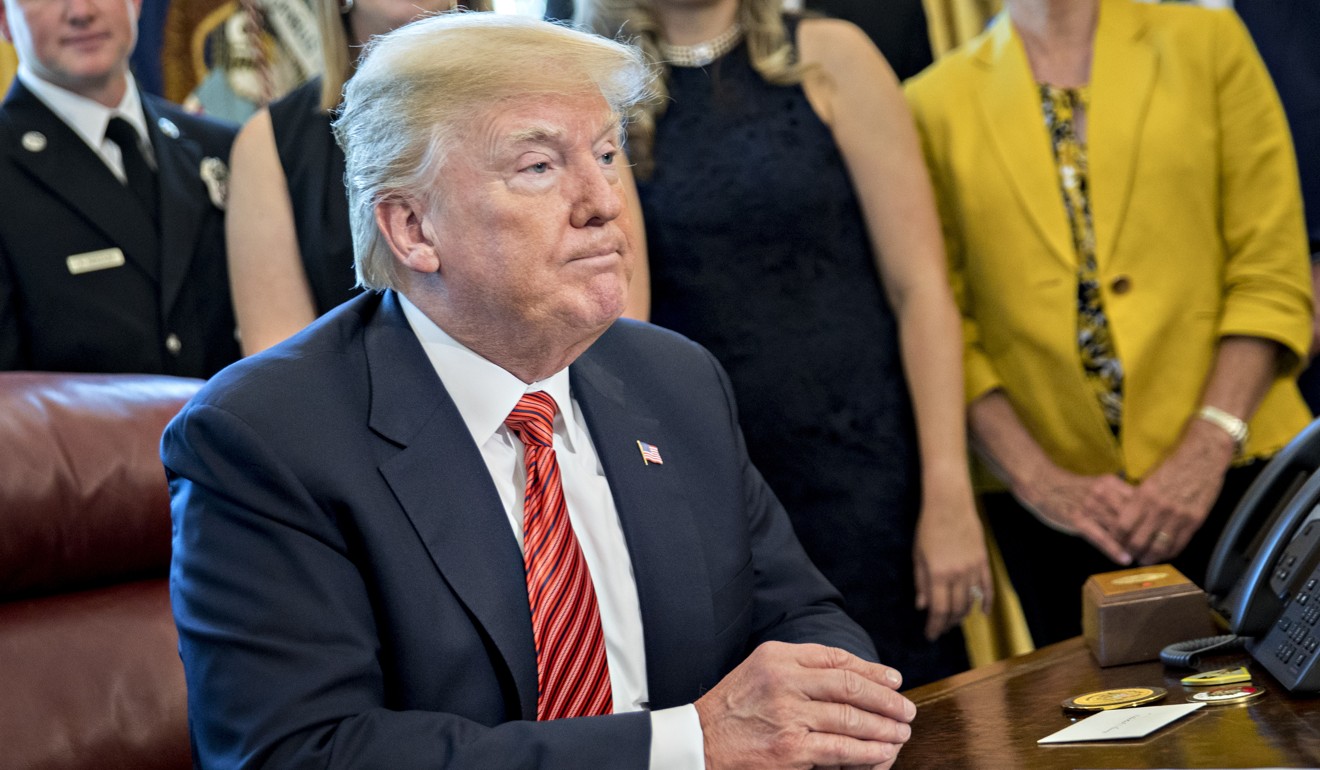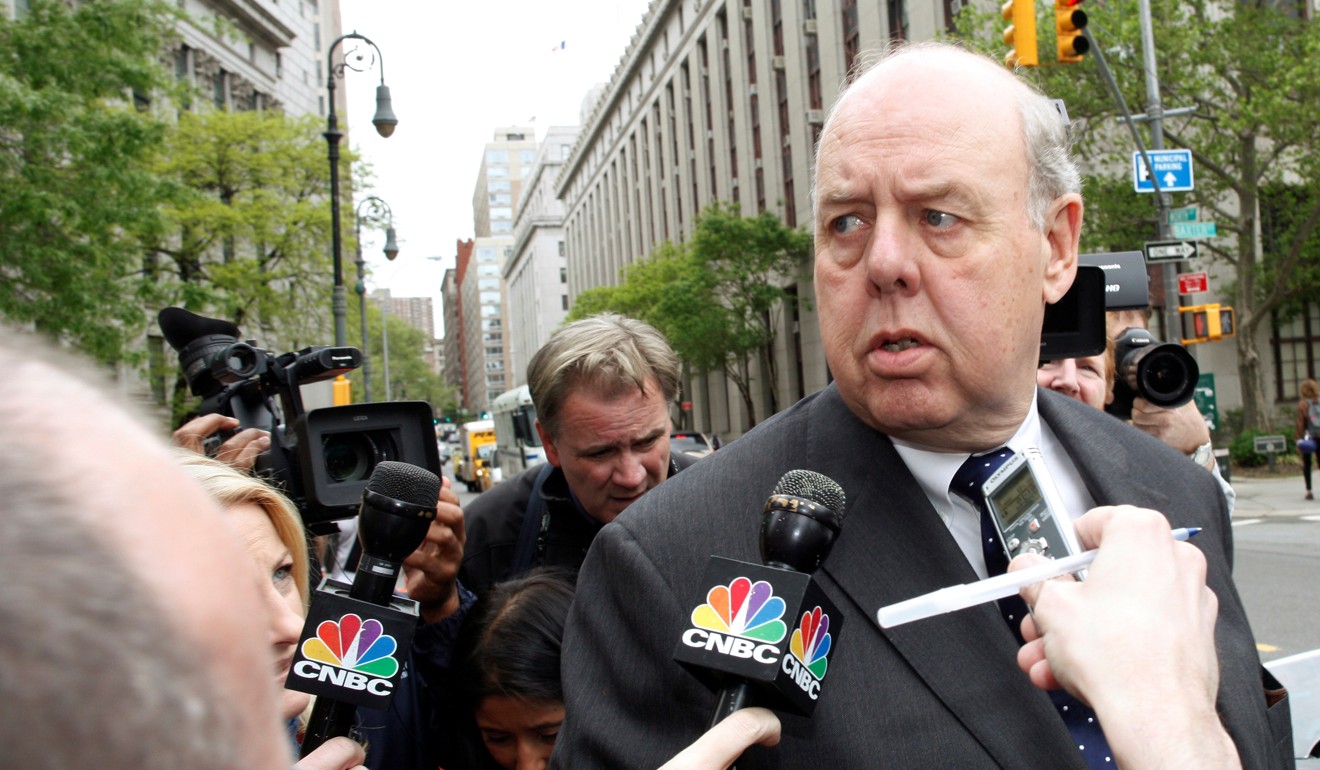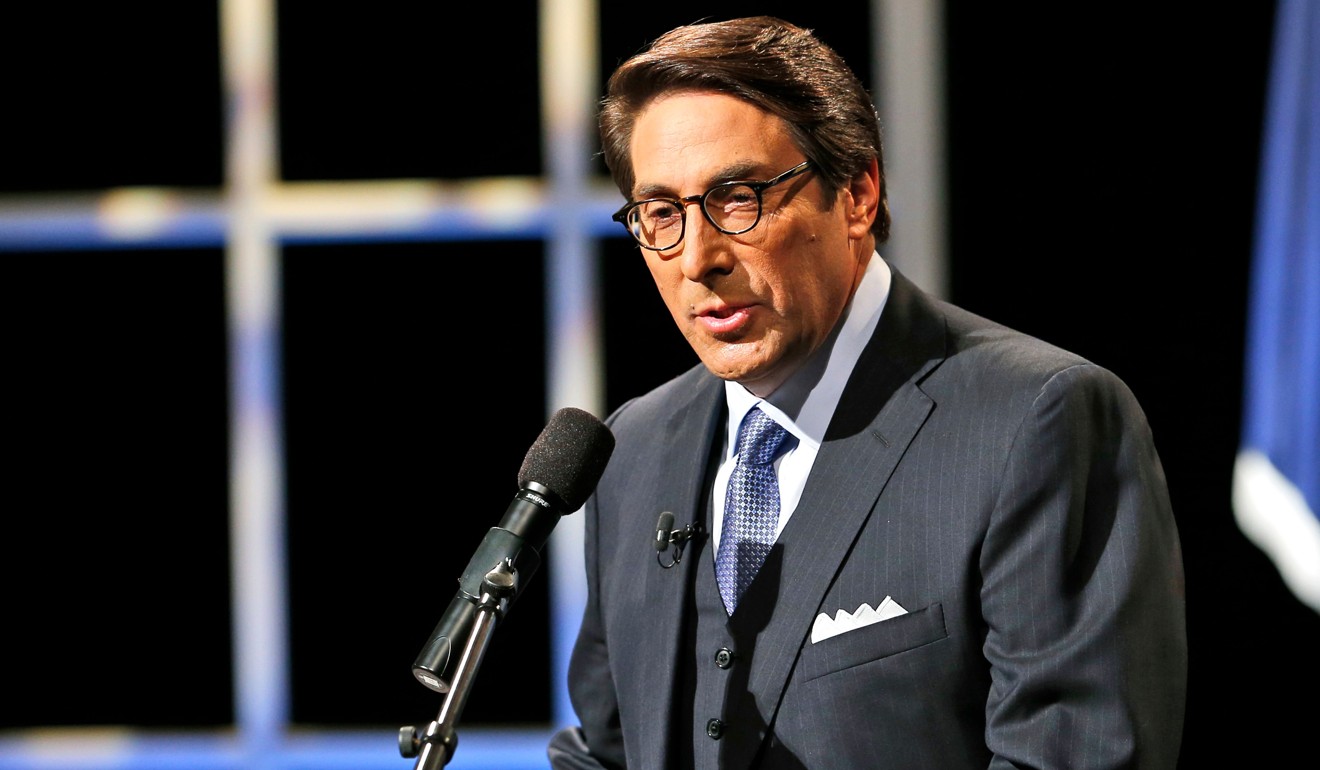
Donald Trump ‘could be made to testify to grand jury by Robert Mueller if he refuses to talk – and his lawyers lack proper security clearance’
If Trump has to testify to the grand jury, he won’t have his lawyers with him – and their job is already difficult as they don’t have the necessary clearances to deal with the case
Special counsel Robert Mueller warned Donald Trump’s lawyers that the US president could be subpoenaed and hauled in front of a grand jury – without legal representation – if he refused to answer questions in the Russia collusion investigation, insiders have said.
The remarks came during a tense meeting in early March between Mueller and Trump’s lawyers, according to four Washington Post sources.
Trump’s former lead lawyer, John Dowd, confirmed with the Associated Press on Tuesday that Mueller’s team broached the possibility of Trump being made to testify under oath while they were negotiating the terms of a possible interview with the president.
Trump replaces lawyer Ty Cobb with Bill Clinton impeachment attorney
However, Dowd did not immediately make clear in what context the possibility of a subpoena was raised or how serious Mueller’s prosecutors were about the move. Mueller is investigating not only Russian election interference and possible coordination with Trump associates, but possible obstruction of justice by Trump.
Also on Tuesday, Dowd – who left Trump’s team in March over disagreements with the president on legal strategy – told Bloomberg that Trump’s legal fight is complicated by the fact that the president’s remaining team of lawyers lacks the necessary security clearances to deal with the case.

Until his departure, Dowd had been the only member of the president’s personal legal team with a security clearance, sources told Bloomberg; when he quit, Jay Sekulow became the lead lawyer on the investigation – but he is still waiting for his clearance.
Ty Cobb, the White House lawyer handling requests from Mueller, has a security clearance, but he is stepping down at the end of this month, and as his role is to represent the office of the presidency, not Trump personally, he hasn’t been directly involved in discussions with Mueller about an interview.
Rosenstein ‘won’t be extorted’ into ending Trump-Russia collusion inquiry
The lack of security clearances could further complicate already sensitive talks with Mueller’s team.
Mueller believes he has legal standing to subpoena a sitting president, even though such a move has never been fully tested, two current US officials told Bloomberg. Unlike an interview, Trump couldn’t bring his lawyers into a grand jury room.

If Trump agrees to an interview, the topics that could require security clearance for the president’s lawyers include a meeting he had with Russian officials the day after the president fired FBI Director James Comey. That was on a list of more than 40 potential questions that Trump’s legal team compiled based on their discussions with Mueller, a list that was anonymously provided to the news media.
Trump’s legal team is well aware that Mueller could issue a subpoena, a possibility they have factored into their strategy on negotiating an interview, according to people familiar with the team’s thinking.
Explainer: what do Mueller’s questions mean for President Trump?
They have discussed a possible defence against a subpoena, including citing a 1990s ruling involving then-President Bill Clinton that set a standard for when a president can invoke executive privilege.
And even if Mueller’s team decided to subpoena Trump as part of the investigation, he could still fight it in court or refuse to answer questions by invoking his Fifth Amendment protection from self-incrimination.
Although Mueller’s team has indicated to Trump’s lawyers that he’s not considered a target, investigators remain interested in whether the president’s actions constitute obstruction of justice and want to interview him about several episodes in office.
From the start, Trump’s legal team has been out-manned by Mueller’s.
While Mueller had a team of more than a dozen seasoned prosecutors at the prime of their careers, Trump’s team was led by Dowd, who had decades of experience with large-scale investigations but was in solo practice and nearing retirement.
Leaked questions reveal what Mueller wants to ask Trump
Sekulow brought a background in constitutional law but had no experience with a major criminal investigation. Neither had the resources of a major law firm to draw on.
Sekulow also struggled to find another lawyer with experience in white-collar investigations to help after several high-profile lawyers turned down the work because of conflicts of interest or concerns about the negative publicity that could come from being involved with Trump’s case.

Trump lashed out against the investigation in a familiar fashion Wednesday, saying on Twitter: “There was no Collusion (it is a Hoax) and there is no Obstruction of Justice (that is a setup & trap).”
That followed another rant on Tuesday, in which Trump said it was “disgraceful” that a list of proposed questions drafted in response to Mueller’s negotiations with the legal team was “leaked” to the news media.
Republican-led House panel clears Trump in Russia probe
A person familiar with the matter, who insisted on anonymity to discuss the negotiations, told the Associated Press that the president’s lawyers extrapolated the list of expected questions based off conversations with Mueller’s team about the topics prosecutors wanted to cover in a potential sit-down with Trump.
The questions reflected what the defence lawyers anticipated Trump would be asked, rather than verbatim queries that Mueller’s team provided, the person said.
According to the list, the questions range from Trump’s motivations for firing FBI Director James Comey a year ago to contacts Trump’s campaign had with Russians.
In a tweet, Trump said there were “no questions on Collusion” and, as he as many times before, called Mueller’s investigation a “Russian witch hunt”. He said collusion with the Russians “never existed”.
Watch: Trump rages against Mueller, Comey in fiery Fox News call-in
In a second tweet, Trump said: “It would seem very hard to obstruct justice for a crime that never happened.”
The questions do appear to indicate that Mueller is looking into possible collusion. Some touch on Russian meddling and whether the Trump campaign coordinated in any way with the Kremlin.
In one question, Mueller asks what Trump knew about campaign staff members, including his former campaign chairman Paul Manafort, reaching out to Moscow.
Mueller has brought several charges against Manafort already, including money laundering and bank fraud. None of the charges relates to allegations of Russian election interference and possible coordination with Trump associates, and Manafort has denied having anything to do with such an effort.
Flight records disprove Trump’s claim about night in Moscow
The questions also involve key moments from the early months of the Trump administration, including his reaction to Attorney General Jeff Sessions’ recusal from the Russia investigation and Trump’s firing of his first national security adviser, Michael Flynn.
One question asks whether there were any efforts to reach out to Flynn “about seeking immunity or possible pardon” ahead of his guilty plea last year. Flynn is now cooperating with Mueller.


